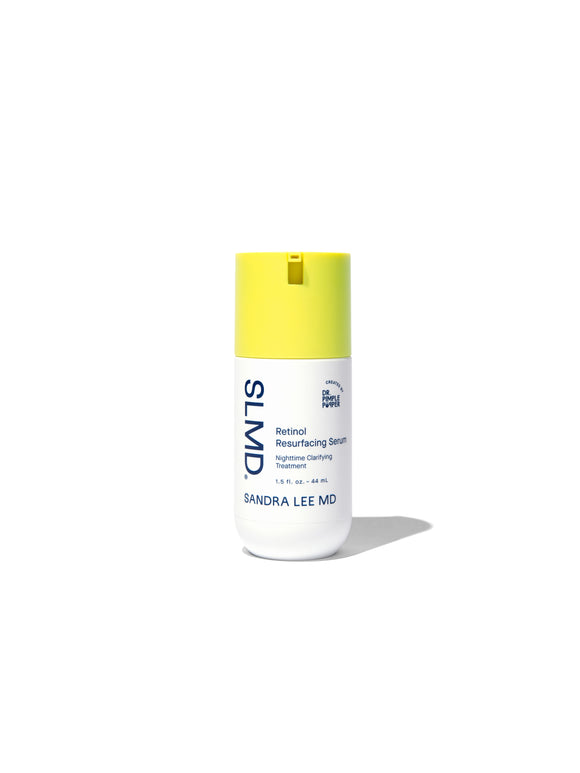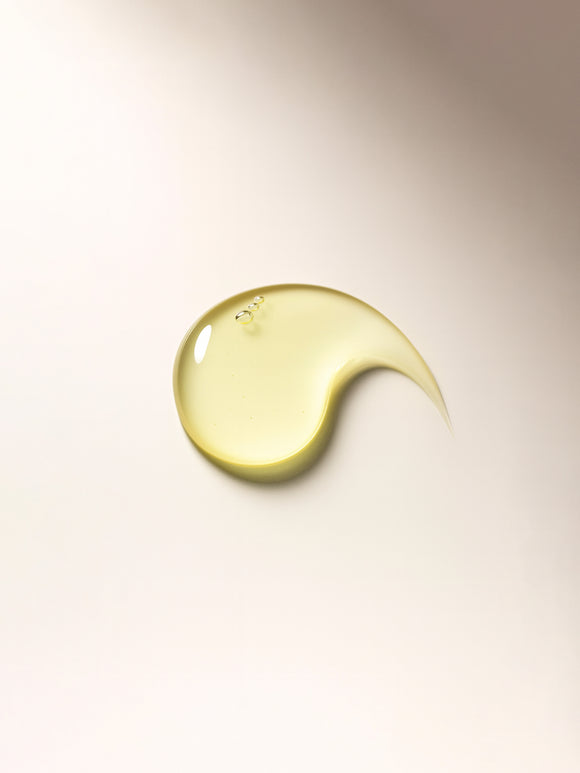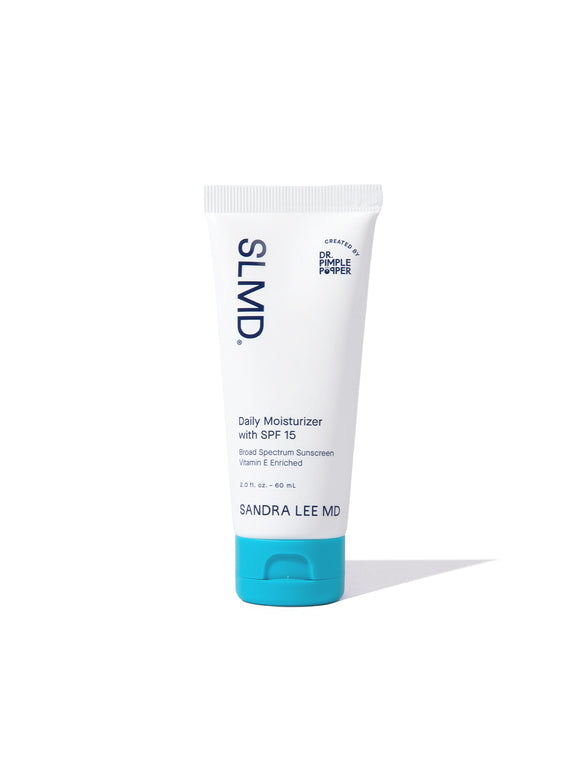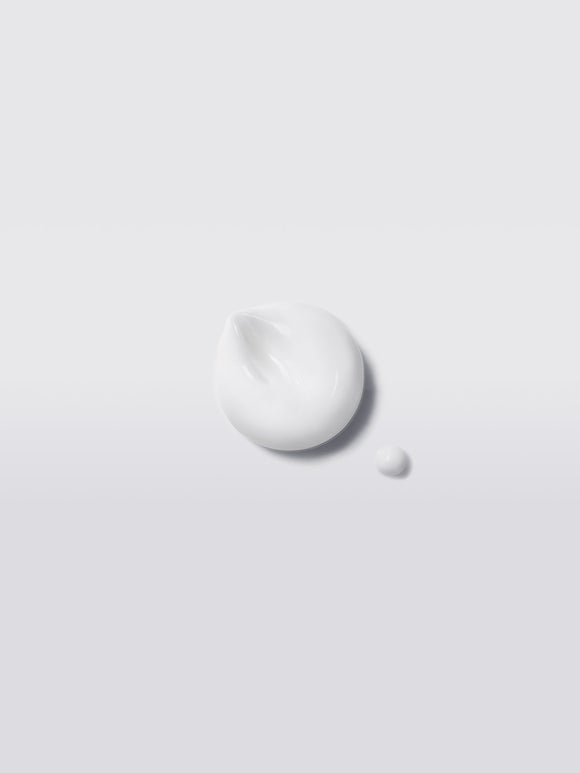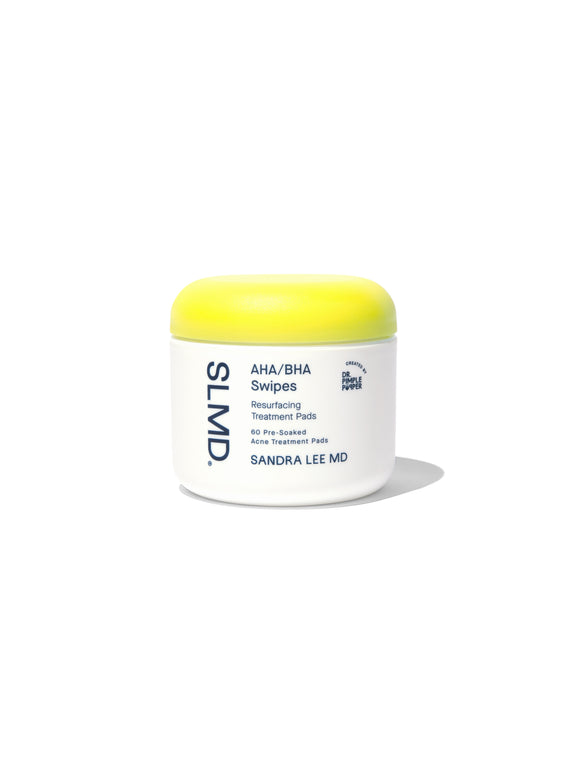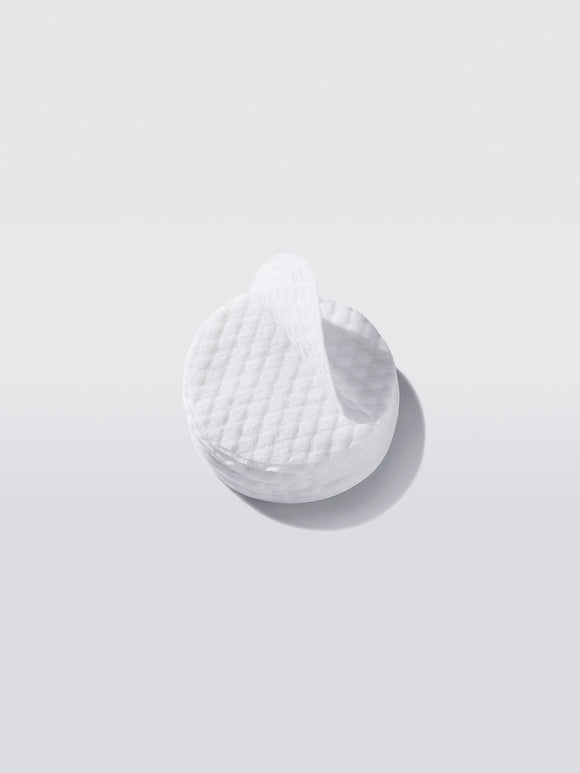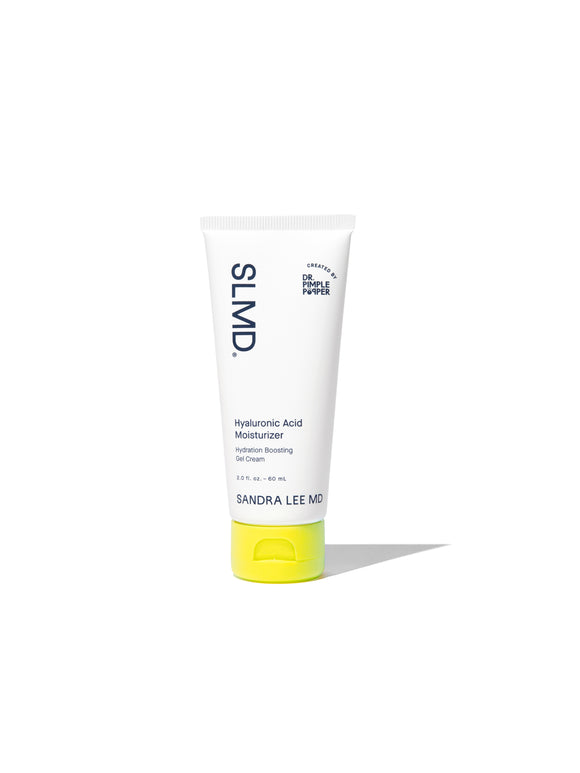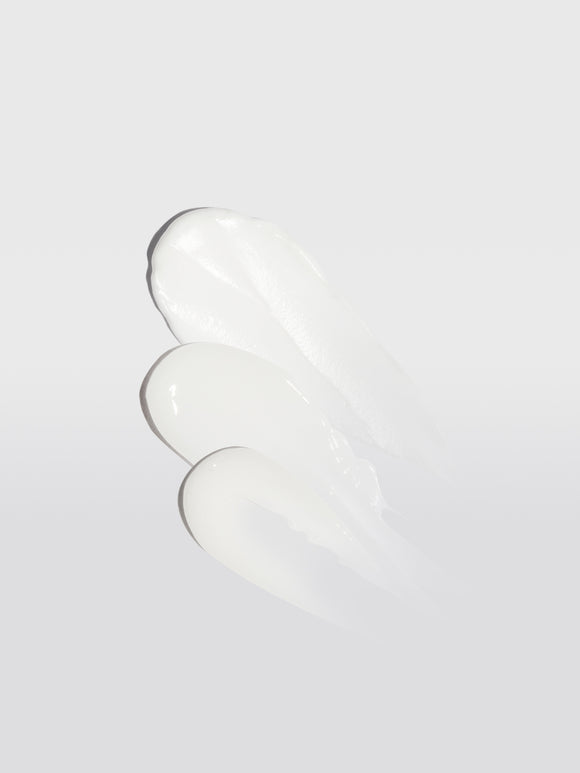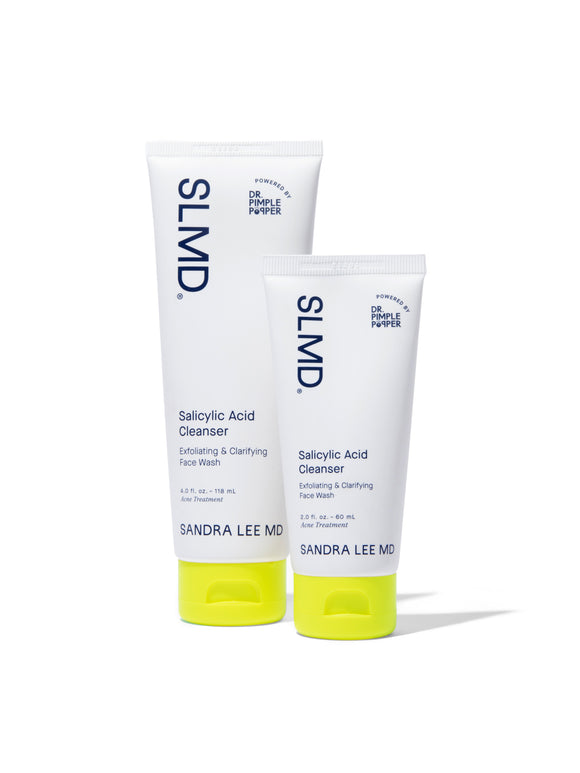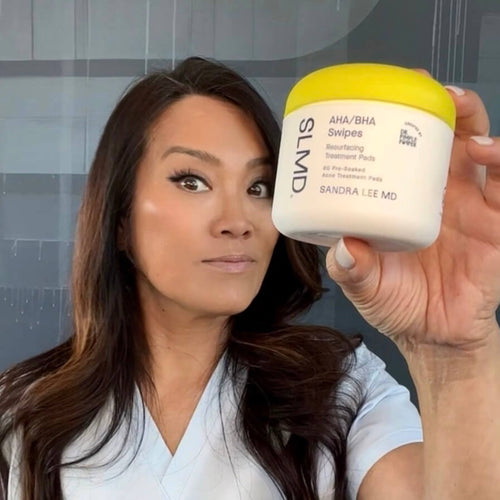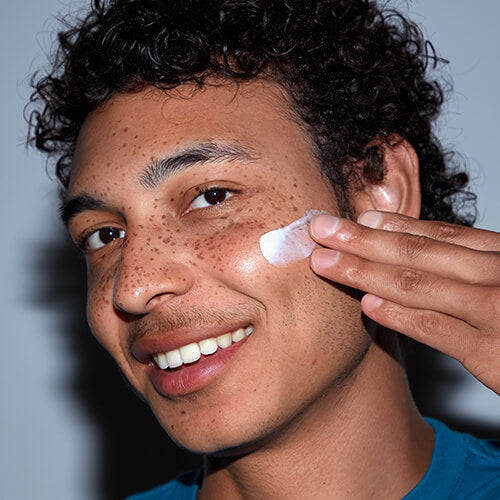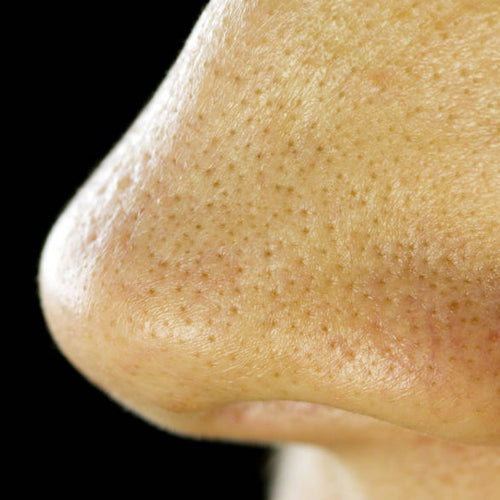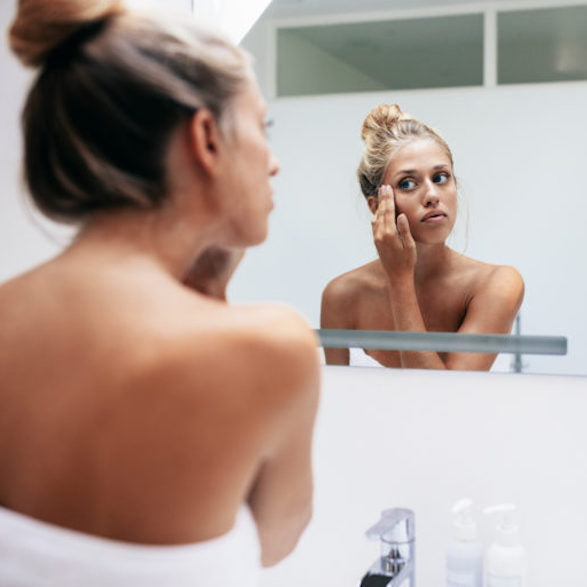
Best Oily Skin Routine: Dermatologist-Approved Tips & Products
Tips from Dr. Pimple Popper to make sure you shine — just not literally.Published:
3 minute read
If you have oily skin, you know it can be challenging: excess shine, midday touch-ups, and recurring breakouts. But here’s the good news: having oily skin has its benefits. With the right care, you can manage the challenges while taking advantage of what your skin’s natural oils are designed to do.
SLMD founder Sandra Lee, MD (aka Dr. Pimple Popper) explains what causes oily skin, why those oils matter, and her dermatologist-approved tips for keeping skin clear, balanced, and healthy.
Fast Facts About Oily Skin
- Genetics and hormones are the main drivers of oil production.
- Natural oils protect the skin barrier and slow visible signs of aging.
- Excess oil can clog pores and contribute to acne.
- A consistent routine helps keep oily skin balanced.
Article Quick Links
What causes oily skin?
Oil comes from sebaceous glands: tiny structures in the skin that secrete sebum. How much sebum your body produces depends on several factors, including:
- Genetics: DNA largely determines baseline oil levels.
- Hormones: Higher androgens (like testosterone) trigger more oil.
- Age: Oil production rises during puberty, then changes with age.
- Environment: Heat, humidity, and UV exposure increase sebum.
- Lifestyle: Diet, stress, BMI, and medications all play a role.
What does oil do for your skin?
Sebum isn’t just surface shine, it serves several important functions:
- Prevents moisture loss: Oil reinforces the skin barrier and regulates water loss.
- Shields against microbes: Sebum forms a protective coating that helps defend against bacteria, fungi, and viruses.
- Neutralizes free radicals: Natural antioxidants in oil help buffer environmental stress.
“One of the upsides of oily skin is that it tends to age more slowly,” explains Dr. Lee. “Those natural oils help protect against fine lines and dryness over time.”
How oily skin contributes to acne
Sebaceous glands connect to hair follicles, which help move oil to the skin’s surface. When oil, dead skin, and debris clog this pathway, pores become blocked — leading to blackheads or whiteheads. Add acne-causing bacteria, and inflammation can create pimples.
“Managing oily skin doesn’t mean eliminating oil altogether,” Dr. Lee notes. “It means keeping sebum production and pore health in balance.”
Dr. Pimple Popper's Oily Skin Solutions
Dr. Pimple Popper’s tips for managing oily skin
Wash with a gentle cleanser
Over-washing strips skin and can trigger rebound oil production. Most people only need to wash twice a day with a gentle exfoliating cleanser like SLMD Salicylic Acid Cleanser. If you’ve been sweating, wearing makeup, or feeling extra oily, an extra wash is fine.
Use the right mask (2–3x weekly)
Masks with sulfur, clay, or charcoal absorb excess oil — but moderation is key. Dr. Lee recommends using face masks 2–3 times weekly, leaving on only as directed to avoid irritation.
Add acne treatments where needed
The T-zone has the highest concentration of oil glands, which makes it more prone to breakouts — though not everyone with oily skin develops acne. If you do notice pimples, targeted ingredients like benzoyl peroxide or sulfur can help. At night, a retinol product can reduce clogged pores and help regulate oil.
Try: SLMD Benzoyl Peroxide Acne Lotion, Retinol Resurfacing Serum, AHA/BHA Swipes
Use blotting papers for midday shine
Blotting papers are a simple way to absorb excess oil throughout the day without disturbing your makeup or skincare. They’re especially useful for people with oily skin who experience shine in the T-zone. Slip a pack into your bag for quick touch-ups on the go.
Choose a lightweight moisturizer
Skipping moisturizer can backfire, signaling skin to make even more oil. Look for lightweight, oil-free formulas like SLMD Daily Moisturizer with SPF 15 — a two-in-one moisturizer and sunscreen.
Use a translucent powder or powdered SPF
A lightweight, non-comedogenic powder (ideally with sunscreen) helps mattify skin while adding sun protection.
Oily skin FAQs
Q: Is having oily skin bad for you?
A: Oily skin is not harmful. In fact, natural oils help protect the skin barrier and may slow visible signs of aging. The key is keeping oil production balanced so pores don’t become clogged.
Q: Does oily skin cause acne?
A: Oily skin alone does not cause acne. Breakouts occur when excess oil combines with dead skin cells and bacteria, creating blockages that can lead to blackheads, whiteheads, or pimples.
Q: Do I need moisturizer if I have oily skin?
A: Yes, oily skin still needs hydration. The best choice is a lightweight, non-comedogenic formula like SLMD Daily Moisturizer with SPF 15, which combines moisturizer with broad-spectrum sunscreen.

Dr. Lee's Last Word
Oily skin can be challenging, but it’s not a flaw. Your natural oils actually help protect your skin and keep it looking youthful. Keep it balanced so you can minimize breakouts while protecting your skin barrier.





